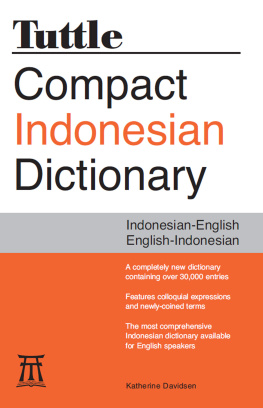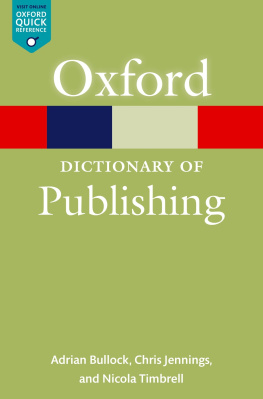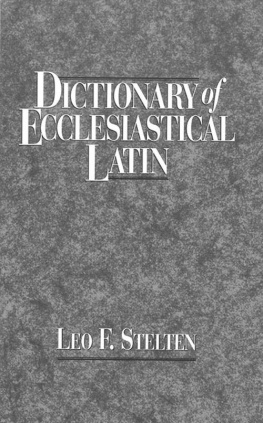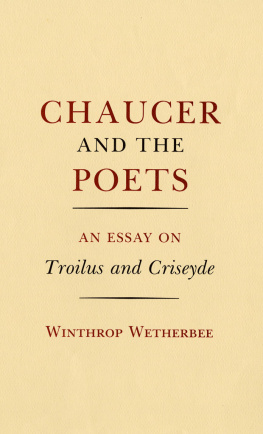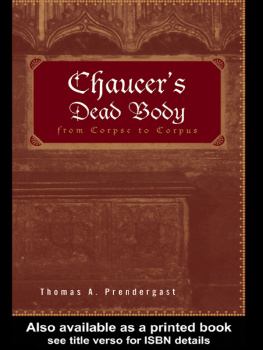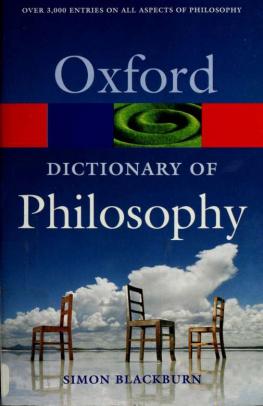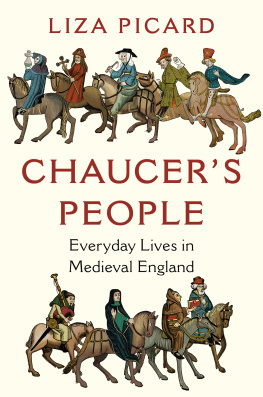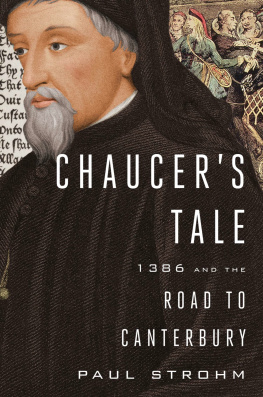Chaucers Church
About the volume:
The purpose of Chaucers Church is to provide clear, concise and reliable explanations of every term Chaucer uses that has a religious, liturgical, or ecclesiastical meaning. It uses a dictionary format, arranged according to Chaucers spellings, to make information readily accessible for students, teachers, critics, and the general reader. The shorter entries present brief definitions which are more lively and illuminating than those in standard dictionaries or glossaries; the longer entries are in fact short essays, with suggestions for further reading, on broader or more complex topics. In all cases the entries concentrate on lucid and accurate presentation of the meanings that the terms had or could have had for Chaucer and a fourteenth-century audience.
The book is a compact but precise reference for readers of all levels of experience on the vocabulary of fourteenth-century religion, which is often unfamiliar or only hazily understood. A careful system of cross-references guides the reader to related terms, so that individual entries can be further explored in related or larger contexts. The book may also be browsed or read on its own, for the entries taken together, especially the brief essays, provide a coherent introduction to the Christian world of the late fourteenth century.
In Chaucers Church, the editors have succeeded in compiling a volume that combines ease of use with readability and rigorous accuracy. This book provides convenient and trustworthy access to Chaucers religious
world.
About the authors:
Edward E. Foster received his A.B. from St Peters College and his Ph.D. in English from the University of Rochester. He was a Fulbright Fellow at the University of Nottingham in 1986 and an Honorary Professor of English at the University of St Andrews in 198990. He has edited King Arthurs Death: The Alliterative Morte Arthur and The Stanzaic Mort Arthure and Amiloun, Sir Amadace, and Robert of Cisyle for Medieval Institute Publications. He has authored Chaucers Intellectual and Interpretative World: Nominalist Fiction (Mellen Press) and has published studies of Chaucer and metrical romance in the Chaucer Review and other journals. For the last twenty years he has been Professor of English at Whitman College. He holds the Schwabacher Professorship of English at Whitman and an honorary D.H.L. from Albertson College.
David H. Carey took a B.A. from St Johns College (at Annapolis, MD), S.T.B. and M.A. in theology from Pontificia Universitas Gregoriana, and M.A. and Ph.D. in philosophy from the University of Pittsburgh. He was an Assistant Professor of Philosophy at Whitman College from 1989 to 1994, at which time he was tenured and promoted to Associate Professor.
First published 2002 by Ashgate Publishing
Reissued 2018 by Routledge
2 Park Square, Milton Park, Abingdon, Oxon OX14 4RN
52 Vanderbilt Avenue, New York, NY 10017, USA
Routledge is an imprint of the Taylor & Francis Group, an informa business
Copyright Edward E. Foster and David H. Carey, 2002
Edward E. Foster and David H. Carey have asserted their moral right under the Copyright, Designs and Patents Act, 1988, to be identified as the authors of this work.
All rights reserved. No part of this book may be reprinted or reproduced or utilised in any form or by any electronic, mechanical, or other means, now known or hereafter invented, including photocopying and recording, or in any information storage or retrieval system, without permission in writing from the publishers.
Notice:
Product or corporate names may be trademarks or registered trademarks, and are used only for identification and explanation without intent to infringe.
Publishers Note
The publisher has gone to great lengths to ensure the quality of this reprint but points out that some imperfections in the original copies may be apparent.
Disclaimer
The publisher has made every effort to trace copyright holders and welcomes correspondence from those they have been unable to contact.
A Library of Congress record exists under LC control number: 2001053580
ISBN 13: 978-1-138-72511-9 (hbk)
ISBN 13: 978-1-138-72506-5 (pbk)
ISBN 13: 978-1-315-19204-8 (ebk)
Religion permeated life in the fourteenth century in a way that may be hard for a modern person to imagine. A united, if squabbling, Christianity was present to Chaucer and his contemporaries as a fact of daily life. Religious feasts and observances, veneration of the saints, familiarity with the stories of Scripture, and a present consciousness of the four last thingsdeath, judgment, heaven, and hellwere embedded in the experiences and habits of mind of England in the High Middle Ages. Therefore, to understand Chaucer it is necessary to be familiar with the religious, ecclesiastical, and liturgical vocabulary that emanated from his world. The intention of this book is to provide ready access not only to the meanings of the religious vocabulary that Chaucer and his hearers took for granted, but also to suggest something of the resonance that the words and ideas would have had for Chaucer and his contemporaries. Religious language has a significance and potency in a world of faith that it cannot have in a more secular and diverse society. To re-create some of that resonance, we have endeavored to provide definitions beyond the kind of shorthand found in editions and glossaries, yet short of the comprehensive treatment that scholarly exegesis would providea kind of middle ground that improves the readers context for understanding without the detail appropriate for a religious historian.
We have used as our base the Riverside Edition of Chaucer (gen. ed. Larry D. Benson. Boston: Houghton Mifflin Co., 1987) and the corresponding concordance: A Complete Concordance to the Works of Geoffrey Chaucer, ed. Akio Oizumi (New York: Olms-Weidman, 1991-). On the assumption that this book will primarily be used by readers who come upon a word or name in Chaucer and want a clarification of its meaning or significance beyond what a glossary would provide, we have arranged the terms in alphabetical order. We have enumerated all of the Chaucerian spellings under the same entry, using parentheses to indicate optional letters. We have not included all grammatical forms of the words on the grounds that this would be needlessly repetitive. Thus, we list purvea(u)nce and purveyaunce, but provide no separate entry for purveye. Since our expectation is that the reader will be moving from Chaucers text to our definitions, we have not included line-number references, which are, in any case, fully detailed in the Chaucer Concordance.
Consistent judgments had to be made about what to include and what to leave out: essentially, where to draw the boundaries of religious terms. We have included all terms that have a specifically religious meaning and terms with secular meanings if they also have an important religious imposition or implication. Thus, astrologye is not a specifically religious term, but it had wide-reaching religious significance as a challenge to orthodox beliefs concerning free will and the order of Gods creation.


